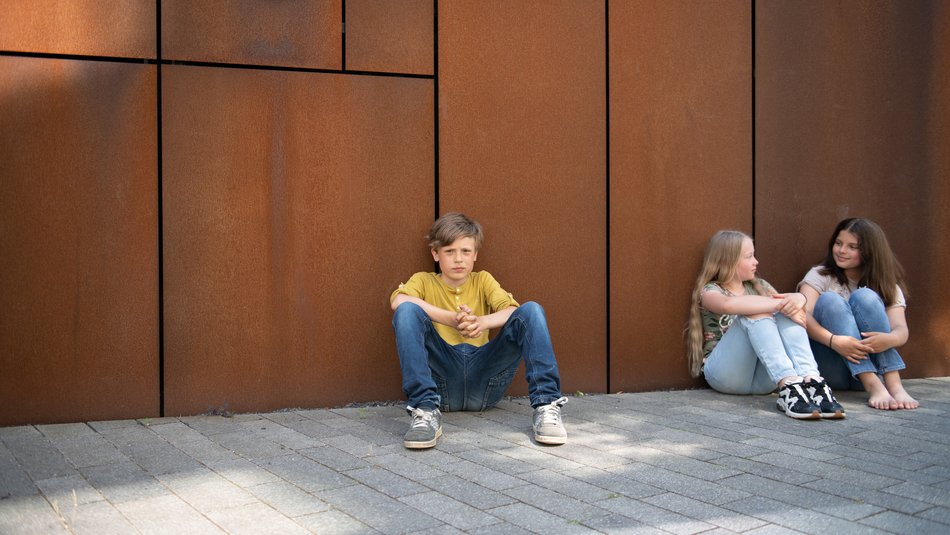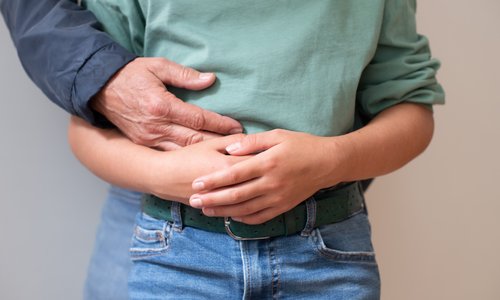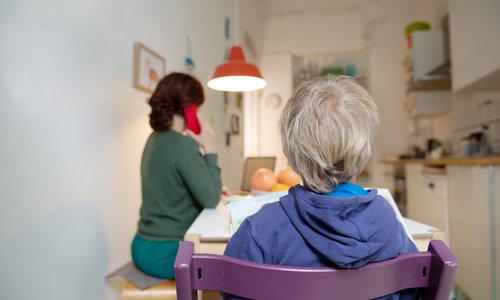
At the international level there are legally binding conventions, guidelines and international strategies that strengthen children’s rights and administer protection against the sexual abuse of children and adolescents as well as providing help and support. They include international treaties such as the UN Convention on the Rights of the Child, Council of Europe agreements such as the Lanzarote Convention or European directives such as the EU Abuse Directive, which must be implemented in German law.
The United Nations and children’s rights
One of the most important international agreements is the UNCRC (UN Convention on the Rights of the Child, which was adopted in 1989 and ratified by Germany in 1992.) The Convention on the Rights of the Child recognises children and adolescents as legal subjects in their own right. Children's rights are grouped into participation, promotion and protection rights.
Articles 19 and 34 are especially important for protecting children and adolescents from sexual violence. Article 19 governs the obligation of countries to protect children from all forms of violence, which includes sexual violence. Under Article 34 of the UNCRC, countries must explicitly commit to protecting children from all forms of sexual exploitation and sexual abuse. The UNCRC has been broadened by the addition of three more protocols in the meantime. The second of these protocols governs other rights of children, which concern the selling of children, child prostitution and depictions of abuse, i.e. so-called child pornography.
Signatory countries must report back to the UN Committee on the Rights of the Child once every five years about how they have implemented the UNCRC in their own country. Germany submitted its 5th/6th national reports about how the Convention on the Rights of the Child has been implemented back in 2019. The UN committee's final comments are expected in 2022.
History of children’s rights
It has only been agreed that children are subjects with their own rights since the 20th century. Up to then, children were always considered to be the property of their parents until they came of age. It was not until industrialisation and the introduction of compulsory education that society started to focus on children being legal subjects. The children’s rights movement was started by a British woman, Eglantyne Jebb, who founded the Save the Children Fund.
The League of Nations incorporated the Declaration of the Rights of the Child that was drafted by Eglantyne Jebb into its "Geneva Declaration" in 1924. Its principles form the basis of the UNCRC adopted by the UN General Assembly in 1989.
Children's rights explained to children
Children's rights day
Every year on the 20th November, Germany, the United Nations and many other countries celebrate International Children's Rights Day. Demonstrations, events and festivities are held to draw the public's attention to child protection and children's rights issues. The date is the anniversary of the adoption of the Convention on the Rights of the Child by the United Nations General Assembly on the 20th November 1989. Some countries hold their Children's Day on a different day. Germany celebrates World Children's Day on the 20th September.Implementing children’s rights in Germany
Germany ratified the UNCRC in 1992. It has applied unconditionally to all children in Germany since 2010. Under Article 4 of the UNCRC, Germany is obliged to implement the provisions of the Convention on the Rights of the Child in national law. Children's rights currently have the status of a simple law and, despite numerous attempts and commitments, they are not incorporated in basic law. Nevertheless, children's rights are stipulated in specific laws, e.g. in 15 of the 16 constitutions of the federal states, in the criminal code, in the civil code and in the eighth social code book.
Under Article 3 of the UNCRC, Germany is obliged to consider children’s well-being as a priority issue in all measures that affect children. This means that the UNCRC’s fundamental principles must always apply in all decisions made by administrative authorities, courts or other state institutions. The emotional, mental and physical well-being of a child is to be protected with the aim of enabling the child to develop a self-responsible and socially competent personality. Under Article 12 of the UNCRC, a child's wishes must also be taken into consideration in all matters that affect this child.
The UNCRC’s monitoring office
In order to follow and monitor the implementing and effectiveness of the Convention on the Rights of the Child, a UNCRC monitoring office was established at the German Institute for Human Rights (DIMR) in 2015. The special task of the monitoring office is to examine the implementation status of the Convention on the Rights of the Child in Germany, to make accessing information about children's rights easier, to identify problems that occur when implementing children's rights and to advise policy-makers during their decision-making processes. It has to work with civil society organisations, research institutes and government agencies in order to achieve these objectives.
Supplementary report from the national coalition
The national coalition, i.e. the network for implementing the Convention on the Rights of the Child in Germany, is preparing a supplementary report in parallel to the submission of the official report about the implementation of the Convention on the Rights of the Child from the federal government. This report, which was submitted in 2019, was prepared with the help of 101 organisations who participated during a two-year period.Dauer: 3:25
International agreements made by the Council of Europe: The Lanzarote convention
The Council of Europe convention about the Protection of Children against Sexual Exploitation, the so-called Lanzarote Convention of 2007, was the first pan-European convention of its kind and it was signed by both member states and non-member states of the Council of Europe. The convention came into force in Germany on the 1st March 2016. It is one of the key international agreements dedicated to combating child sexual abuse. The Lanzarote Convention obliges the signatory countries to make sexual violence against children a basic criminal offence, even if it takes place within the family or abroad. It also defines a number of acts as chargeable and they include grooming, producing and distributing abuse images (so-called child pornography) as well as child prostitution.
The agreement includes countries accepting obligations to implement preventive measures, such as training courses for adults who work in direct contact with children, educational offers for children and adolescents about sexual violence and providing help through internet and telephone hotlines. These countries are also obliged to establish independent institutions for promoting children's rights and to ensure that the work of all state agencies involved with child protection is coordinated.
The Lanzarote committee
The Lanzarote committee from the parties to the convention on the Protection of Children against Sexual Exploitation and Sexual Abuse monitors the implementing of the Lanzarote convention in specific countries. The committee uses a questionnaire for this that has to be completed by the contracting parties and enhanced with additional data. The monitoring is sub-divided into specific issues, which have to be dealt with consecutively. The monitoring reports were last published in 2015 and 2018.
European Day for the Protection of Children against Sexual Abuse and Sexual Exploitation
The “European day for the protection of children against sexual exploitation and sexual violence” is an initiative of the Council of Europe and it has been held annually, under a selected motto, on the 18th November since 2015. The aim is to raise awareness of the problem in the member countries, to combat all forms of sexual violence against children and adolescents and to better network and publicise national and pan-European activities in combating sexual violence. The UBSKM office also participates annually in this initiative. More information can be found here.Directives and strategies of the European Union
European Union directives are binding and the EU's member states must incorporate them in their national laws. The directives for combating sexual abuse and for protecting victims are especially important for UBSKM’s work. UBSKM is also committed to implementing the EU strategy for combating child sexual abuse more effectively.
Directive 2011/93/EU on combating child sexual abuse
Directive 2011/93/EU from the European Parliament and the Council issued on the 13th December 2011 about combating the sexual abuse and sexual exploitation of children as well as child pornography was used in 2015 as the 49th law to amend the criminal code - it implemented the European guidelines covering sexual criminal law. The Directive harmonised the child sexual abuse offence definitions, including online ones, within the EU. The directive also obliges EU countries to adopt preventive measures and to protect surviving infants.
EU strategy for combating child sexual abuse more effectively
The EU Commission adopted a strategy for combating child sexual abuse - both offline and online - in July 2020 in order to improve existing EU measures for protecting children from sexual abuse and to tackle new challenges, especially in the digital media context.
This strategy focuses on verifying compliance with EU regulations, developing sector-specific rules for law enforcement agencies and the private sector for detecting and reporting child sexual abuse on the internet. This strategy centres on establishing an EU centre for preventing and combating child sexual abuse by focusing on transferring knowledge and networking within the EU. It should also improve how children are protected against sexual violence through networking different actors into global alliances.
Survivor protection at EU level
Directive 2012/29/EU from the European Parliament and the Council issued on 25th October 2012 covering minimum standards for the protection, rights and support for survivors of offences (survivor protection directive) came into force in 2012. It aims to ensure that all of the survivors of abuse offences will receive adequate information, protection and support and that they can also participate in criminal proceedings. It was implemented in Germany at the end of 2015 through the Act to Strengthen Victims' Rights in criminal proceedings, i.e. the so-called 3rd Survivors' Rights Reform Act. Children and adolescents who have survived serious sexual or violent offences now have a legal right to free psychosocial support during criminal proceedings.
The EU also adopted the 2020 - 2025 Survivors' Rights Strategy. It should enable survivors of offences to exercise their rights and also strengthen cooperation when protecting the survivors. This is why it sets out measures to be taken over the next five years at EU, member state and civil society levels.





